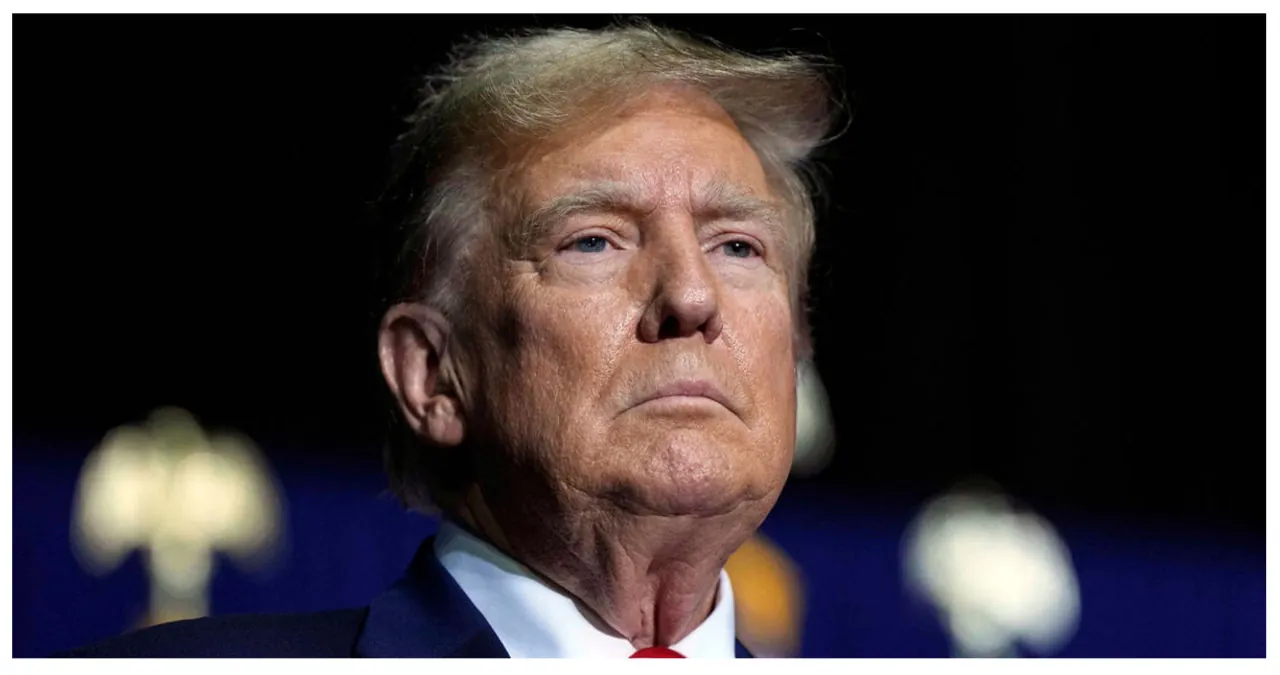Lawyers representing former President Donald Trump have filed a court document asserting that the charges brought against him in the Georgia election interference case are an attempt to criminalize protected political speech and advocacy. The legal team argues that these charges infringe upon Trump’s rights under the First Amendment.
According to the lead attorney for the 45th president, the state’s classification of something as false is what makes it fraudulent. He argued before Judge Scott McAfee that the state’s opinion is the sole reason why it is deemed unprotected.
During the hearing, Sadow presented motions earlier this year that outlined the arguments in detail.
The defense argues that President Trump’s requests to Georgia Secretary of State Brad Raffensperger in 2021 are protected by the First Amendment and cannot be the basis for any prosecution.
According to another defense motion, it is crucial to note that the charges in this indictment solely involve core political speech, which receives the highest level of protection under the First Amendment. This makes President Trump the first individual to face criminal charges for engaging in such fundamental political behavior.
Sadow extensively quoted a dissent from Justice Samuel Alito in a significant First Amendment case. The passage goes as follows:
Even where there is a wide scholarly consensus concerning a particular matter, the truth is served by allowing that consensus to be challenged without fear of reprisal. Today’s accepted wisdom sometimes turns out to be mistaken. And in these contexts, “[e]ven a false statement may be deemed to make a valuable contribution to public debate, since it brings about ‘the clearer perception and livelier impression of truth, produced by its collision with error.’”
According to Sadow, given the circumstances, it requires additional protection rather than reducing the existing protection.
According to Sadow, it is essential to analyze the speech and expressive conduct in relation to specific statutes. It is crucial to examine why, in this particular case, the language and speech of the president fall within the scope of those statutes. Sadow argues that the fact that the speech is false is the only ground on which they can base their arguments.
The defense’s as-applied challenge to the free speech argument centers around the claim that Fulton County prosecutors acted prematurely, assuming that Trump had engaged in illegal activity before using his speech as evidence to support their case.
According to Sadow, the state’s intention is to unlawfully steal the election. However, he suggests viewing it from a different perspective – as a legitimate concern about the validity of the election. By doing so, even with the existing facts, we can determine whether President Trump’s statements on these matters would be considered protected speech. The answer, according to Sadow, is that it must be protected.
The defense team also filed a motion to dismiss certain charges in the indictment. They argued that these charges are based on Georgia laws that criminalize making false statements in specific situations, without requiring the element of materiality. According to Sadow, applying these statutes to “political discourse” is a clear violation of the constitution.
According to Trump’s attorney, determining whether the overt acts in the racketeering (RICO) charge are valid is a more difficult decision. However, he strongly believes that the fundamental principles of the First Amendment in the United States safeguard political speech.
According to Sadow, all the accusations against President Trump are merely political speech. He argues that if we remove the political aspect, there would be no grounds for any criminal charges. The basis for these charges, he believes, is solely rooted in disagreements with political speech.
The state, on the other hand, maintained that Trump’s prosecution did not solely revolve around his speech or the falsehoods in his speech.
According to prosecutor Donald Wakeford, discussing public concerns or engaging in core political speech does not provide immunity from indictment if such speech is used to pursue illegal activities. He emphasized that using speech and expression as a means to carry out criminal conduct is considered a pattern of unlawful behavior.

